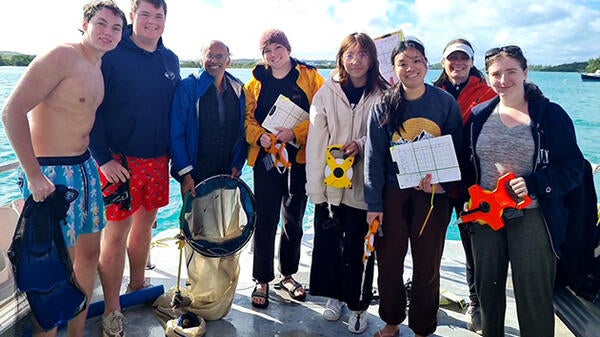Paul Gensbigler, 20, is no stranger to the water, having spent the past two years studying the health of the Chesapeake Bay, the largest estuary in the United States. A junior majoring in molecular and cellular biology at Johns Hopkins University (JHU) in Maryland, Gensbigler is researching the microbes that help control nutrient levels in the Bay. However, this January he traded the brackish waters of the northern Chesapeake for the salty waters of the northern Atlantic in a “Hopkins Intersession Abroad” program.
Animals in Ocean’s Twilight Zone Thrive on Upcycled Nutrients
July 24, 2023
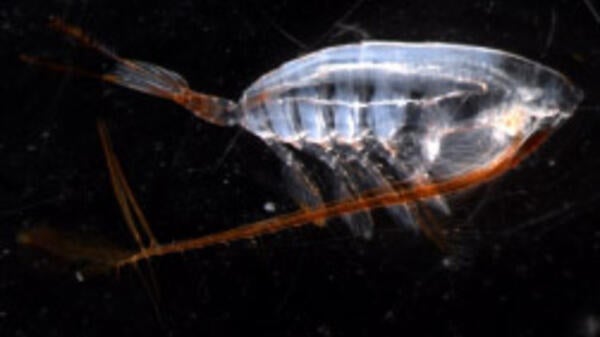
Living at the edge of darkness, the community of microbes and tiny animals in the ocean’s twilight zone upcycle nutrients to ensure their survival. A study led by researchers at the University of Hawai‘i at Mānoa revealed that small, free-floating animals called zooplankton rely mainly on an even smaller class of organisms, called microzooplankton, to consolidate the sparse waste products in the water and transform it into higher-quality food. The study was published in Limnology and Oceanography.
BIOS’s Ocean Academy Opens Doors of Opportunity
November 30, 2022
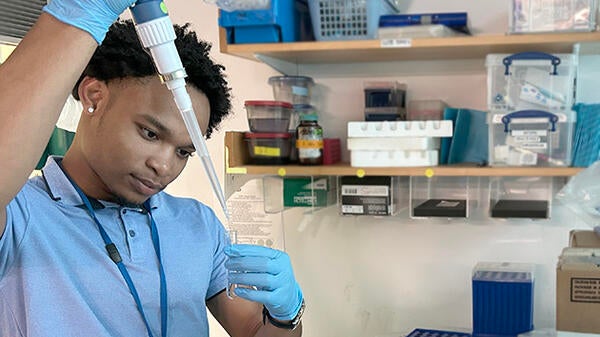
Through the generous support of a philanthropic sponsor, two BIOS Bermuda Program alumni are continuing to develop valuable scientific laboratory techniques and research skills outside of the Institute’s annual summer internship program. Jihad Muhammad, 22, and Marcus Rewan, 21, are working as part-time research interns through the BIOS Curriculum Enrichment Program.
ASU Announces New School of Ocean Futures
October 01, 2022
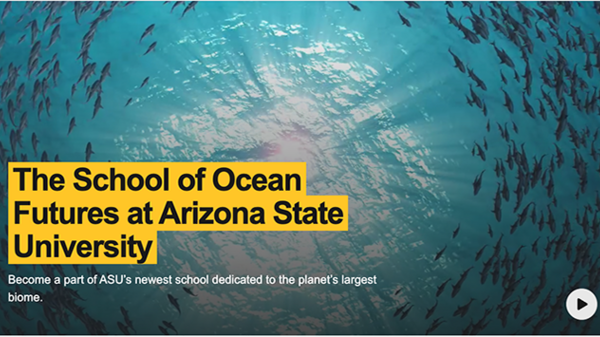
A new school dedicated to the study of the ocean and its ecosystems, and it is based in the desert?
BIOS Supports Bermuda’s Next Generation of Environmental Stewards
October 05, 2022
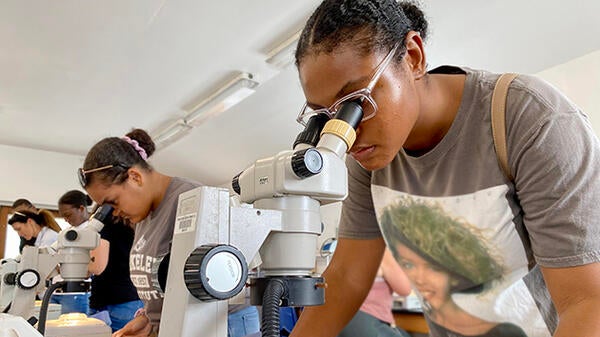
Alongside more than a century of research in ocean and atmospheric science, BIOS has a rich history of education programs that foster an understanding of the island’s marine resources and promote stewardship of the ocean environment among Bermuda’s youth. In addition to school-based programs offered throughout the year, BIOS also collaborates with local organizations to support their ocean-focused education initiatives.
Ocean Exploration Through Video Game Simulation: “subROV”
September 20, 2022
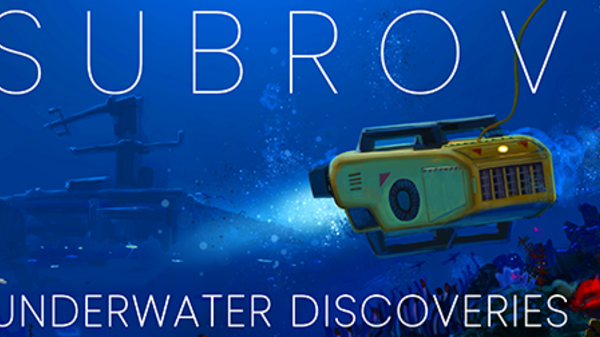
Beginning this fall, ocean exploration enthusiasts will have a new window into the deep sea and its inhabitants through the virtual world of subROV: Underwater Discoveries, a PC-based simulation video game. Developed with input from researchers at BIOS and the Schmidt Ocean Institute (SOI) in Palo Alto, California (U.S.), subROV allows players to assume the controls of a remotely operated vehicle (ROV) and pilot it on a variety of scientific missions.
‘An Amazing Place to Learn and Grow’
July 05, 2022
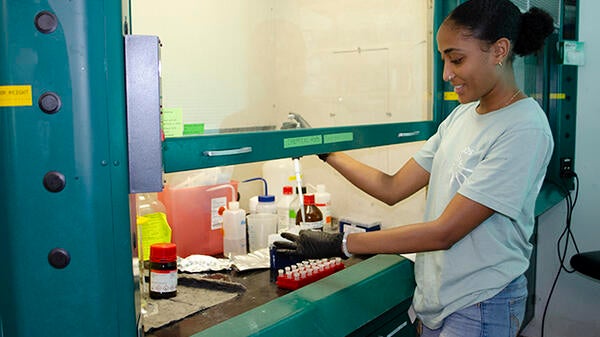
The Bermuda Program, part of BIOS’s Ocean Academy suite of local education programs, has been providing internship opportunities to Bermudian students, aged 18 and older, since 1976. In that time, more than 250 summer internship placements have been provided to young Bermudians. The program pairs students with BIOS faculty and scientific staff, who serve as mentors for participants while they conduct research projects in the fields of marine and atmospheric science.
Delivering on the Demand for Data
June 25, 2022
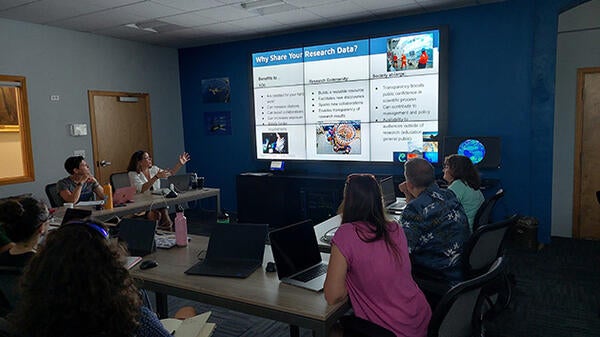
Melissa Hicks is a professor at Onondaga Community College in Syracuse, New York where she teaches introductory courses in geology and oceanography, including a study abroad program in marine ecology of the Bahamas. For the last two years, she’s also been interested in finding ways of incorporating real-world ocean science data into her curriculum.
From Ocean Academy Student to BIOS Research Technician
March 13, 2022
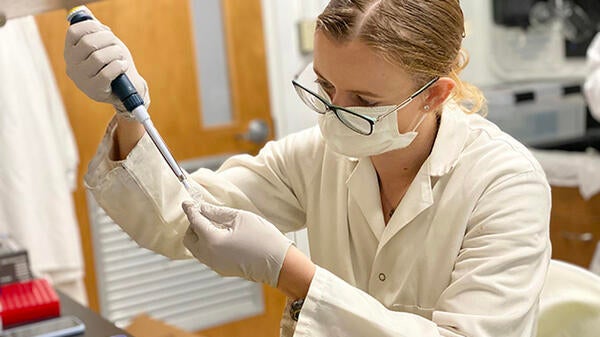
Growing up in Bermuda, Jessica Godfrey developed a fascination with the local corals and other sea life. While attending the island’s Saltus Grammar School, she studied oceanography, narrowing her interest to marine biology.
New Faces in the “Zoop Group”
February 26, 2022
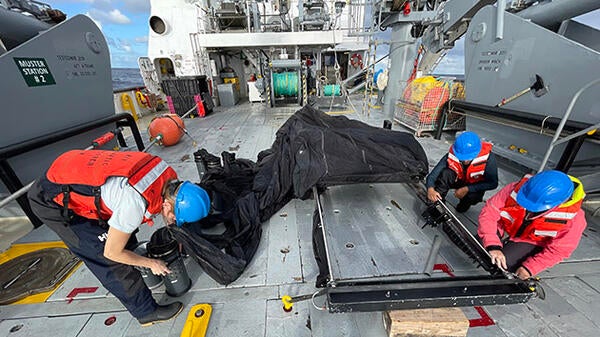
BIOS faculty members Leocadio Blanco-Bercial and Amy Maas study tiny zooplankton, essential to the marine food web, and fondly refer to students and researchers in their Bermuda lab as members of their “Zoop Group.” Three new student members have joined their ranks, including two who will complete their internships in the months ahead and another who will continue their work through mid-2022.
